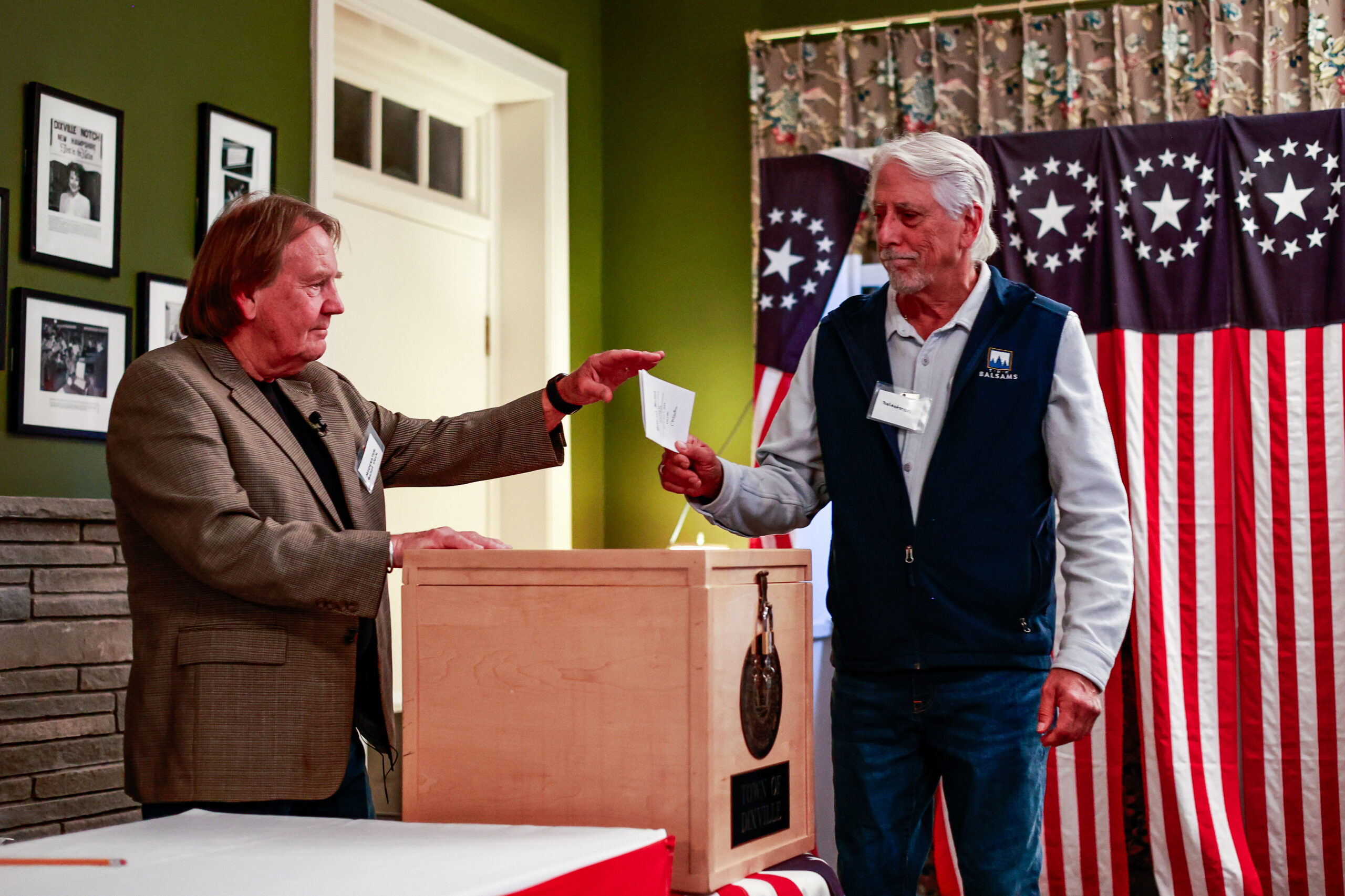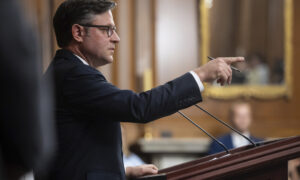The chocolate chip cookies had been cooked, the room was warm, and one of America’s strangest election traditions was about to begin: the six occupants of a former hotel in Dixville Notch, New Hampshire, would meet at midnight to vote for president.
“This feels about normal,” Tom Tillotson, 79, whose father established the custom of early-morning voting at the Balsams Grand Resort Hotel in 1960, remarked a few minutes before voting began.
The count, the initial outcome of the election, was announced 12 minutes after midnight. In a hamlet where 66.67 percent of registered voters are Republicans (the other two being independents) and Nikki Haley won the primary with all six ballots, the general election resulted in a tie: three votes for Kamala Harris and three for Donald Trump.
Scott Maxwell expressed surprise at the split result. His vote for Mr. Trump surprised even him. Mr. Maxwell said he was uncertain as of 10:30 p.m. Monday.
Four years ago, Joseph R. Biden Jr. received all five votes. In 2016, Hillary Clinton received four votes while Donald Trump received two.
Dixville Notch was established with the primary goal of converting the Balsams lodge into a voting location. Neil Tillotson, the hotel’s owner, gained free advertising for the resort, and journalists used the hotel’s in-house phone service to report the town’s true, if statistically tiny, vote total 12 hours before exit polls from other parts of the country began to arrive.
“It was a public relations stunt all along,” said Andrew Smith, director of the University of New Hampshire Survey Center and co-author of “The First Primary,” a book about New Hampshire’s importance in presidential campaigns.
Over time, the event drew hundreds of journalists and presidential contenders such as Ronald Reagan, John McCain, and both George Bushes. The Balsams resort deteriorated as the stunt became an annual event. Visitor numbers and revenue fell until 2011, when the resort closed.
How do you vote in a town that never was, or in a hotel that is no longer in operation?
For the first three elections following 2011, voting took place inside the former hotel, but the empty, unheated buildings deteriorated swiftly during New Hampshire’s hard winters. In 2016 and 2020, voters and media jammed into the porch of a small cottage on the grounds that had been rebuilt for the event, according to hotel employee Coralie Stepanian, 59.
Another difficulty arose in 2019, when the number of employees living on the property fell to four, one less than the minimum allowed by state law for an election district. By then, Les Otten, a former ski resort entrepreneur, had purchased the land with the intention of turning it into a year-round resort.
To preserve the midnight voting custom, Mr. Otten repaired a boarded-up house on the property and lived in himself. Later, he was joined by his business partner, bringing the total number of inhabitants and voters to six.
“It’s just clean, plain democracy,” Mr. Otten, 75, said on Monday of his wish to continue the event.
Dixville Notch voters spent weeks preparing for this year’s election night. They received calls from curious journalists in New York City, Montreal, and Hong Kong. They mowed the lawn in front of Mr. Otten’s house, which now serves as a polling precinct. In the kitchen, they made ham and cheese croissants and wallet-sized chocolate chip cookies. In the living room, they set up risers for television journalists, chairs for photographers, and a plastic table for counting votes.
“In our backyard, the system is going to work the way it was designed,” Mr. Otten said before the vote. Six individuals will vote. Their vote will be counted. And when it’s done, it’s finished.”







